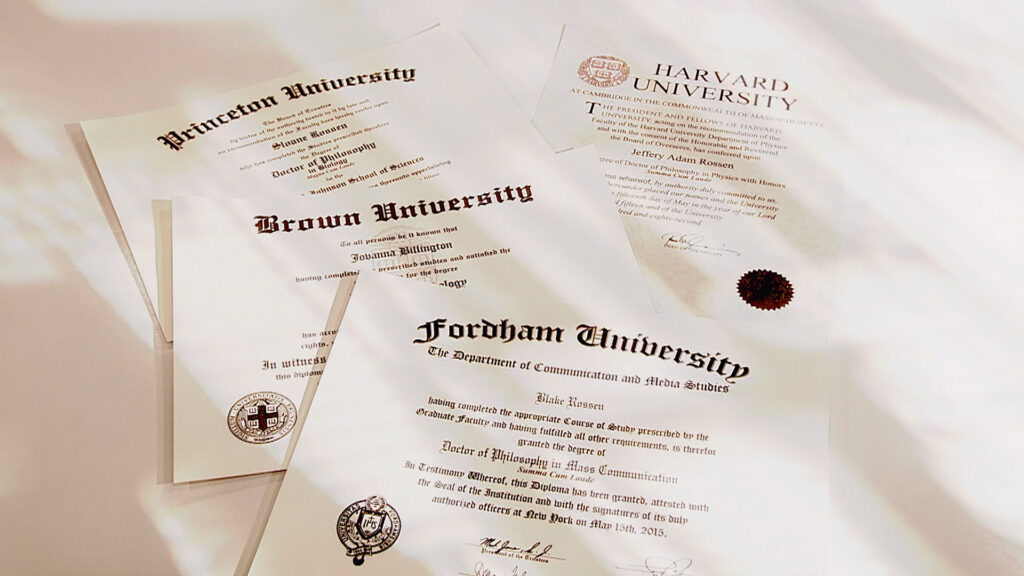Fake degrees have become a multi-billion dollar industry. However, the legal implications are unclear.
When universities investigate allegations of academic fraud, they usually create a panel composed of professors who have subject matter knowledge. This is because academic fraud typically involves a complex and obtuse field of study.
Legal Issues
The federal government has taken measures to provide information about fake diplomas and diploma mills, but it is up to the individual states to regulate the use of these. In some instances, even if someone isn’t in violation of any particular law by promoting their fake degree in some cases, they may put themselves in danger of legal liability by using legally protected terms that require licenses in their field, such as lawyer, doctor or professional engineer.
The biggest issue with fake degrees is that they undermine the authenticity of genuine degrees that individuals spend hours and thousands of dollars acquiring. Fake degrees are also an issue for the general public because they allow professionals such as engineers and healthcare workers to be hired with no formal education or qualifications.
Certain companies offer fake degrees that appear real. Some companies give the option of choosing an institution and a degree. Others are made within five days. Others claim to be able to grant the degree based on an applicant’s life experiences or previous work. It can be dangerous for the general public since it can lead to fake credentials being issued in fields which could present health and safety risk.

Academic Fraud Prosecution
In the literature regarding academic fraud, it’s assumed that fraud is prevalent. This is made even more so by the ease with cheating is possible on the internet. Furthermore, the majority of individuals believe that students have an instrumentalist approach to their education and use any method to get the highest grade.
Instructors should be aware of how to deal with allegations of academic dishonesty. It is essential that instructors are able to handle accusations of academic dishonesty.
The procedures should be developed to ensure that the investigation of allegations is done in a fair and impartial manner by a panel composed of experts in the research field of the investigation and do not collaborate on research projects with the person charged. The Standing Committee may appoint persons from outside the University to the panel, when it believes that this is necessary. This can prevent conflicts of interest where the investigation process and the resulting charges are biased towards the student being investigated.
Jurisdictional Questions
For those who can afford the expense, fake degrees can be obtained from a number of diploma mills. Some are even located within the United States.
Falsifying a degree is illegal in many states, as well as a federal offense. It is, for instance, illegal in many states to fraudulently claim a degree that qualifies someone for a job that requires an authorization. Human resource workers usually run background checks that include verification of educational credentials.
Internet fraudsters make lots of money by selling fake transcripts, degrees and other documents. The experts say that fraudsters are becoming more sophisticated.
Eaton notes that creating an official blacklist of fake schools and diploma mills is difficult, since the criminals are able to change their name and Internet domains. She suggests that employers employ a trusted agency to check credentials. For example the Oregon Office of Degree Authorization keeps a list with accredited institutions in the state. It also checks the authenticity of transcripts as well as investigates allegations of degree fraud.
Legislation on fake degrees
There is a dire need for better legal tools to take down on fake degrees. Verifile, which provides information about fake universities and accreditation bodies, says that states that have “promiscuous laws regarding education could be a magnet for fake degrees sellers. “For every high-profile case there are many ordinary people who are using fake degrees to advance,” it says. An example of this is the Seattle deputy sheriff who forged a degree to secure a 2 percent raise in pay. The same is the case for military officers enlisted in the army who bought degrees from an unaccredited institution in Spokane, Washington and learn more at https://lambang247.pro/.
Ezell believes that both state and federal authorities must look into making it illegal to use fake diplomas in order to find a job or to enter an occupation that requires licensure. It is also advisable to bring attention to diploma mills, which according to him will be unable to evade scrutiny than the bogus credit card and mortgage businesses. However, he says that the obligation to stop fraud in the academic world must be shared by individuals as well as professional associations and police departments.